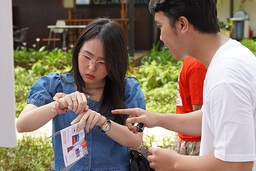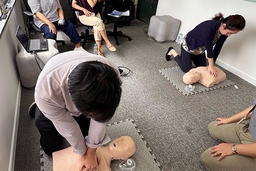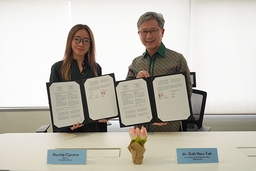Basic Life Support Simulation to Enhance Medical Team Readiness
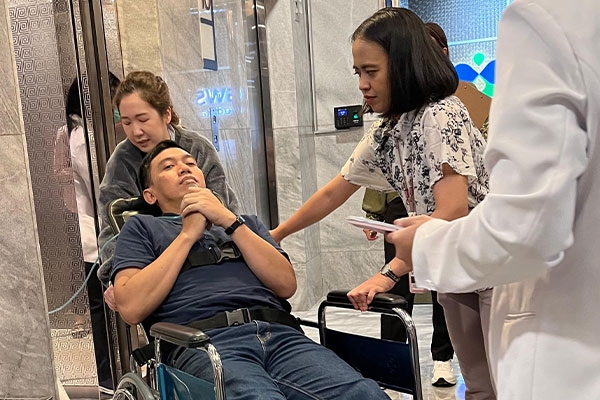
“Rian (41) suddenly complained of shortness of breath, left chest pain, and weakness while leading a meeting. His colleague immediately called the medical team.”
The scenario is part of a simulation to refresh the Basic Life Support (BLS) simulation designed to refresh the knowledge of the GWS Medika project team, including doctors and nurses.
The training aims to improve the readiness in handling and managing emergencies.
In this session, the medical team reviewed the steps for performing resuscitation on patients experiencing cardiac arrest or respiratory distress, as well as providing first aid for other emergencies.
The simulation covered medical techniques, such as initial patient assessment, cardiopulmonary resuscitation (CPR), the use of an automated external defibrillator (AED), and the process of evacuation and referral to higher-level healthcare facilities.
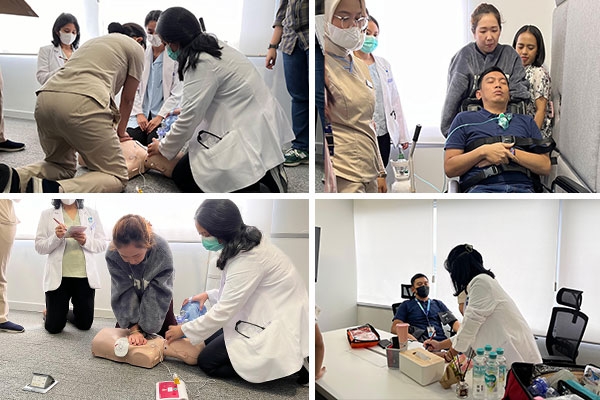
With precision, the medical team gathered the patient's medical history and checked vital signs such as heart rate, blood pressure, temperature, respiration rate, and oxygen saturation.
Rescue procedures included providing respiratory assistance and performing correct chest compressions according to the latest guidelines, as well as coordinating with the hospital to refer the patient.
Through this simulation, participants were trained to work together as a coordinated and responsive team in situations requiring quick decisions.
Dr. Anindita Prasidha Parameswari, an internationally certified BLS instructor, stated, "Cardiac arrest can happen anywhere and anytime. This simulation is designed to ensure that the medical team is always prepared for emergencies."
The BLS simulation held at the GWS Medika headquarters aims to boost the confidence and competence of the medical team in handling workplace emergencies. Regular refresher courses will help maintain the quality of healthcare provided to patients.
Irene Hasugian, a nurse and an internationally certified BLS instructor, added, "Timely and effective first aid can save lives."
This simulation also underscores the importance of collaboration and competence in healthcare. The medical team's readiness not only enhances patient safety but also reinforces their commitment to providing quality and professional healthcare.

